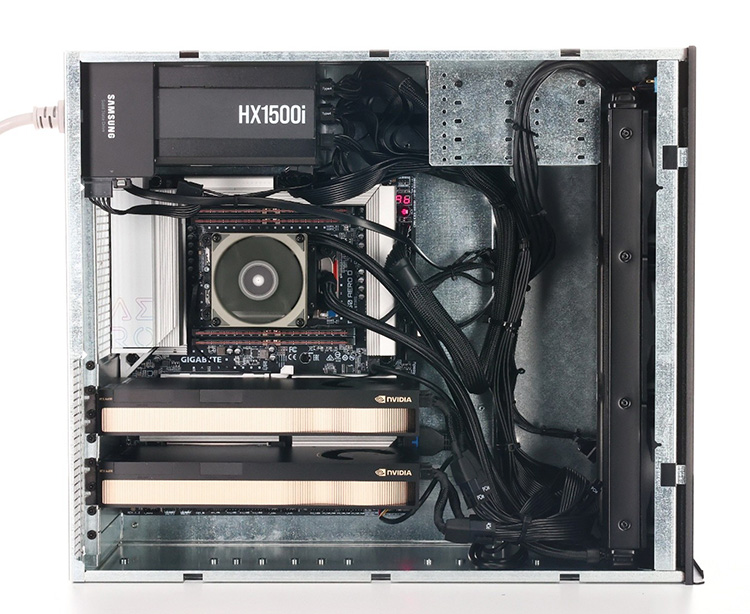
Do You Need Two GPUs in Your Custom PC?
Do you really need more than one GPU in your new custom PC?
You’re building out a new system for yourself, and you want to know if you are going to need two or more GPUs in there. Are you going to get better performance by having more than one? Will it help with your use case for the PC? I’ll talk about a few different types of systems, and if having more than one GPU would benefit you. I’ll talk about general home and office PCs, custom gaming PCs, and high-performance workstation PCs.
General Use and Home Office PCs: One GPU Is Plenty
A general use PC is something that you are going to use at home or the office for a very generalized purpose. This purpose could be using tools like Microsoft Office and other similar programs for your job. It could also be using it at home for browsing the web, or storing and editing photos, etc. Normally, for these types of systems, you aren’t going to even need one dedicated GPU in the system. Instead, you can just use the integrated graphics from the CPU to be able to run your system from. There can be some exceptions to this, like for example, if you want to look at and do some light editing on higher resolution photos (4K or 8K resolution) or something similar. In this case, you might be able to make use of a single dedicated graphics card in the system. Regardless, you aren’t going to need any more than at most the one in these types of systems.
Custom Gaming PCs: Focus on a Single Powerful GPU
So, you don’t need more than a single GPU for general use PCs, but what about gaming PCs? Surely, those could make use of more than one GPU in them right. In the past, you could use two GPUs in gaming PCs to get better performance in your game. It used to be that you could use one GPU for things like physics calculations in games. However, this hasn’t been something that would affect the performance of the games you play for quite some time. And with the complete removal of PhysX from the newest generation of NVidia GPUs, I don’t see this ever being the case again in the future. The most important thing in gaming now, is just making sure that the single GPU you get has enough VRAM for the games that you want to play. This could mean that you need one of the newest cards with a higher VRAM if you are going to be playing newer demanding games. However, if you are going to be playing older games or games that are less graphically demanding, you can get a lower end card and be fine.

Workstation PCs for Rendering and Editing: Multi-GPU May Be Worth It
So, we’ve now talked about general use and gaming PCs not needing more than one GPU. But what about workstation PCs? Do those get any benefit from having more than one GPU in them? Yes, they can, though it does depend on the workload that you will be using the system for. For example, if the programs that you are using are more CPU intensive than you might not need more than a single GPU in the system. This can include scientific data applications like ANSYS Fluent, and encryption or decryption programs like VeraCrypt, as well as other programs. If you are using programs like these and other CPU intensive ones, you can still get good use out of having multiple GPUs depending on what you are doing, but you don’t necessarily need more than one. For more graphically demanding workloads, like using SolidWorks for 3D rendering, Maya for animation, and DaVinci Resolve for video editing, as well as others can make great use of having more than one GPU in the PC. These programs usually make good use of the parallel processing from GPUs, and the programs are normally designed in such a way that when you use more than one you will see better performance.
Final Thoughts: Most Custom PCs Only Need One GPU
So, we have now talked about the three main types of PCs that people are going to be using: general use, gaming, and workstations. The only one of these that is going to see any performance increase from using more than one GPU in them is going to be a workstation PC.
As always, if you need any assistance in speccing out your next system, you can feel free to reach out to us and we will be happy to help. You can reach out to us over the phone, via email, or using our live chat.

Why Choose a Custom Laptop/Notebook?
